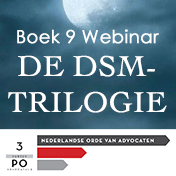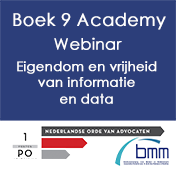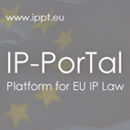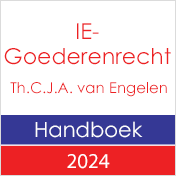 B9 11129. HvJ EU, 24 april 2012, Conclusie A-G Bot in zaak C-128/11, UsedSoft tegen Oracle International Corp.
B9 11129. HvJ EU, 24 april 2012, Conclusie A-G Bot in zaak C-128/11, UsedSoft tegen Oracle International Corp.
Auteursrecht. Software. Uitputting. Conclusie A-G in geschil over de doorverkoop van ‘gebruikte’, tweedehands software(licenties) en ‘het verval van het recht om controle uit te oefenen op de distributie van de kopie van het computerprogramma’. De A-G concludeert dat er een verschil is tussen tweedehands licenties en tweedehands kopieën: “Whereas the resale of a downloaded copy by the first acquirer falls within the ambit of the right of distribution and may be carried out without the consent of the supplier under the principle of exhaustion, the assignment of a user licence, independently of the downloaded copy, allowing the program to be reproduced by creating a new copy by download from the internet, does not fall within the scope of the exhaustion principle.
Creators of computer programs may oppose the resale of 'used' licences which allow their programs to be downloaded from the internet again. However, he suggests that they may not oppose the resale of 'used' copies, downloaded by their own customers from the internet, given that their exclusive right of distribution relating to those copies is 'exhausted'.
The principle of exhaustion applies where the right holder, who allowed that copy to be downloaded from the internet to a data carrier, also granted, for consideration, a right to use that copy for an unlimited period of time. Noting that the marketing of computer software most commonly takes the form of user licences, he considers that an excessively restrictive interpretation of the term "sale", within the meaning of the aforementioned directive, would divest the exhaustion principle of all scope and undermine its effectiveness. He also proposes to define the term "sale" as any act by which a copy of a computer program is made available in the EU, in any form and by any means, for the purposes of being used for an unlimited period and in return for a lump-sum payment.
He is therefore of the opinion that a "licence" for the use of software should be considered as a sale where the customer thereby permanently secures the right to use the copy of the computer program in return for a lump sum payment. He considers, for the same reasons, that a distinction should not be made between computer programs sold on a CD-ROM or any other tangible article and those sold by download from the internet. In his view, allowing the supplier to control the resale of a copy and demand, in that event, further remuneration, on the sole pretext that the copy had been downloaded from the internet, would have the effect of extending the right holder's monopoly on the exploitation of that right.
Nevertheless, the Advocate General does not conclude from this that the resale of user licences should be held to be valid. He submits that such resale is precluded since the principle of exhaustion relates to the right of distribution and not the right of reproduction, and the assignment of Oracle's user licences allows UsedSoft's customers to reproduce the computer program by creating new copies, in particular, by connecting to Oracle's website.
Hence, whereas the resale of a downloaded copy by the first acquirer falls within the ambit of the right of distribution and may be carried out without the consent of the supplier under the principle of exhaustion, the assignment of a user licence, independently of the downloaded copy, allowing the program to be reproduced by creating a new copy by download from the internet, does not fall within the scope of the exhaustion principle.
According to the Advocate General, that practice, which is liable to alter the very substance of copyright, cannot find a basis in the Directive, which only permits the reproduction of the computer program without the consent of the right holder in order to allow a person who already possesses a copy to use the computer program for its intended purposes.
The Advocate General thus concludes that in the event of resale of a licence, the second acquirer cannot rely on exhaustion of the right to distribute the copy initially downloaded in order to reproduce the computer program by creating a new copy, even if the first acquirer has erased his copy or no longer uses it. (Perscommuniqué).
Lees de volledige conclusie hier en het perscommuniqué hier.



























































